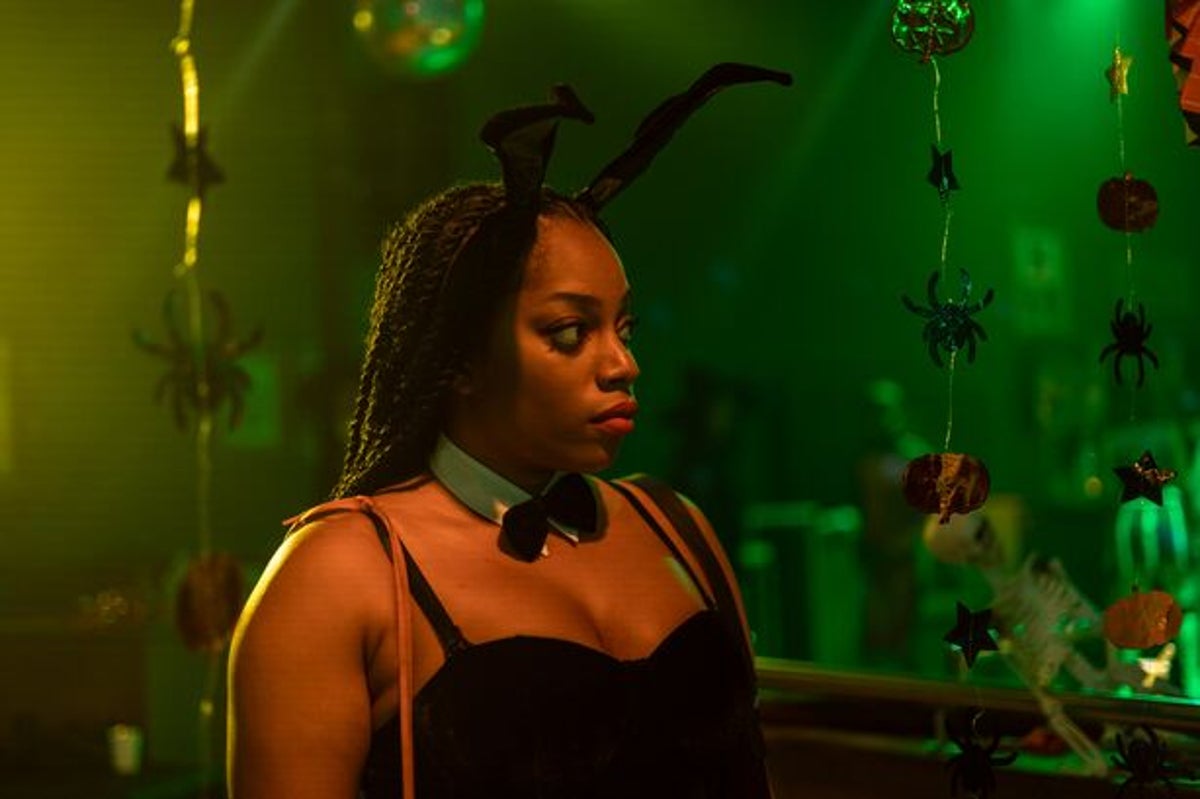
When Candice Carty-Williams’ debut novel Queenie was released back in 2019, it felt like a real publishing phenomenon. You’d spot its colourful covers – readers could choose from a spectrum of rainbow hues – in the hands of bleary-eyed commuters; that summer, it was about as ubiquitous as Zara’s notorious white spotted maxi dress. It was hailed as the Black British answer to Bridget Jones’s Diary. Five years later, heroine Queenie Jenkins has, like Bridget, been brought to life on screen, in a Channel 4 adaptation that’s bitingly funny and sharply observed.
We first meet Queenie, a 25-year-old British-Jamaican journalist played by Dionne Brown, during an early morning gynaecologist appointment. Undergoing a transvaginal ultrasound is, for most women at least, never the ideal way to kick off your working day, but her doctor’s bracing manner (briskly quizzing her on her sexual history before calling over her colleagues to survey Queenie’s scan) doesn’t exactly alleviate the awkwardness. The whole experience is made even more disconcerting – at least for the viewer – by the fact that said doctor is played by former Love Island presenter Laura Whitmore.
It’s a scene that immediately sets the tone for the series, with Queenie’s internal monologue providing a witty running commentary on what’s unfolding on screen. “Are there loads of guys just hanging round in my uterus?” she ponders as Whitmore’s character asks about her past partners. When the doctor brushes off her yelps of pain – “I’m sure you’re fine, strong girl like you!” – it’s the first of many microaggressions directed at our protagonist. Queenie’s scan results prompt her to reconsider her relationship with boyfriend Tom (Big Boys’ Jon Pointing), as does a painful dinner with his family, an event that culminates in his grandmother “doing a racial e-fit” of the couple’s hypothetical grandchildren.
Post-breakup, Queenie turns to dating apps for a series of short-term encounters and situationships that soon turn toxic; she’s relentlessly fetishised by her white partners. Working as a social media assistant at a newspaper, she flounders as she deals with an icy boss played by Bridget Jones star Sally Phillips (one of a handful of nods to that film) and an overly friendly male colleague whose nice guy persona turns out to be a façade. And then there’s her fraught relationship with her mother Sylvie, rooted in a childhood abandonment that forced Queenie to grow up too fast.
Half a decade has elapsed since the book’s publication, meaning that Queenie and her mid-twenties pals have now been rewritten as members of Gen Z. There are nods to the 2020s setting: her young cousin Diana performs TikTok dances, and voice notes replace texts. But the main scaffolding of the story is the same: if anything, dating app culture has arguably worsened since the book was written; gentrification has only sped up and London rents are even higher.
Showrunner Carty-Williams and her fellow screenwriters deftly balance these more serious storylines with lighter, comic moments, and Brown (who’s had smaller roles in shows like Apple TV’s Criminal Record and ITV’s The Walk-In) is a deeply empathetic screen presence: she brings pathos to Queenie’s mental health struggles without smoothing over her spiky sense of humour and her many foibles. She’s backed up by a winning ensemble cast: from newcomer Bellah as Queenie’s best pal Kyazike to Samuel Adewunmi as her low-key, slow-burn love interest Frank. And keen-eyed viewers will spot Carty-Williams in a brief cameo role too.
The half-hour episodes mean that some plot strands don’t get quite as much attention as they deserve, and as the series goes on, there’s a slight sense that we’re hurtling towards a conveniently happy ending. Pacing quibbles aside, though, Queenie is that rare thing: an adaptation that’s sure to be as beloved as the book that inspired it.
‘Queenie’ is available to stream on Channel 4







